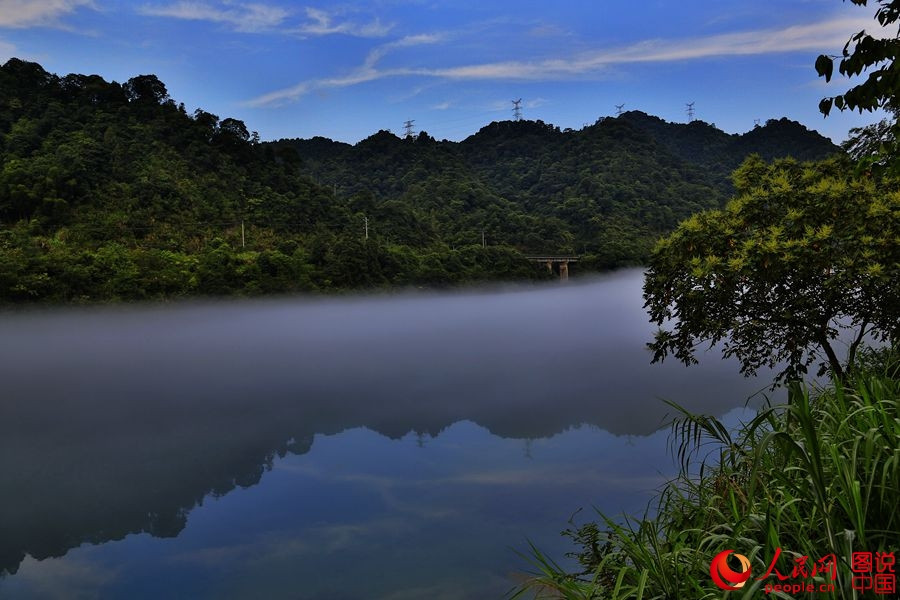 Vintage cars show kicks off in London
Vintage cars show kicks off in London
 Gorgeous scenery in NE China
Gorgeous scenery in NE China
 Picturesque Barkol grassland in Xinjiang
Picturesque Barkol grassland in Xinjiang
 Small Wild Goose Pagoda - A World Cultural Heritage Site along the Silk Road
Small Wild Goose Pagoda - A World Cultural Heritage Site along the Silk Road
 Maritime Silk Road Luxuries of the Han Dynasty
Maritime Silk Road Luxuries of the Han Dynasty
 Ciao! Chinese beauties!
Ciao! Chinese beauties!
 An eye feast: BFA freshmen registration
An eye feast: BFA freshmen registration
 Top 10 most lavish weddings
Top 10 most lavish weddings
 Most amazing chi-pao beauties
Most amazing chi-pao beauties
 Chinese lingerie brand arrives in Las Vegas
Chinese lingerie brand arrives in Las Vegas
BEIJING, Sept. 18 -- With Xi Jinping now in India for the first time as Chinese president, the two old Asian neighbors are facing fresh opportunities to allay disputes and foster ties.
On the economic front, it has been widely anticipated that the two sides would sign a series of cooperative agreements, including one aimed at helping the South Asian country overhaul its decrepit railway system.
Following the recent oversea steps of Chinese leaders, some might have already sensed a peculiar Chinese-style of diplomacy in the making, that is, taking its manufacturing and construction prowess as a diplomatic asset to strengthen ties with countries around the world.
Those who have been to China might be well amazed by how fast and efficient the Chinese people can build things like roads, bridges and railways.
Behind such feat of "Chinese speed" is Beijing's decades of efforts to encourage research and promote technology, the huge investment pulled as well as the diligent nature of the Chinese people, which has helped create the miracle of a lasting economic boom even amid global downturn and secured itself title of the world's second-largest economy.
In the pursuit of common development, China is now widely sharing such hard-won expertise with the rest of the world, particularly its less-developed neighbors, partners and friends in Asia, Africa and Latin America which usually lack infrastructure-building capabilities.
Meanwhile, in the west and south spheres of Asia which Xi's current trip has covered, the old concept of Silk Road, a historical trading route stretching across Eurasia, has come anew with China mulling initiatives to help beef up connectivity within this vast region and to rekindle its traditional amity with nations there.
One of the most exemplary cases of the "Chinese speed" is the high-speed railways. Over the past several years, Beijing has been giving its cutting-edge technology in this field the hard sell across the developing world, with China-made trains and rails heading for Southeast Asia, Latin America, Africa, and even Europe.
Despite being called by some Westerners as "traditional rivals" who tend to clash for territorial and geopolitical reasons, Beijing and New Delhi have opted to focus on economic cooperation where there is still huge potential untapped.
Analysts here say with Xi's visit, the two Asian giants are set to craft a new type of relationship different from "Western-dominated, post-World War II model of great power ties".
Such a relationship should be built upon a joint recognition from both sides that they are sincere partners, not feuding rivals. It also requires their concerted efforts to set aside disputes for common development.
To this end, Xi, in a signed article published in the Indian media ahead of his trip, called on the two emerging powerhouses to draw upon each other's advantages and strengths.
For the Indian people, the upgrading of their country's colonial-era train network, which reportedly witnesses an average of about 15,000 deaths each year, is apparently a matter of urgency, and a help handing from China, which has built the world's longest and most heavily used high-speed railway network, is much awaited.
"With rich experience in infrastructure building and manufacturing, China is ready to contribute to India's development," Xi added.
 Advanced arms help to safeguard China-ASEAN Expo
Advanced arms help to safeguard China-ASEAN Expo Leading director Wang Quan'an detained for 'buying sex'
Leading director Wang Quan'an detained for 'buying sex' Heaven on earth: Dongjiang Lake in Hunan
Heaven on earth: Dongjiang Lake in Hunan Mixed reaction to smartphone sidewalk
Mixed reaction to smartphone sidewalk 'Rainbow running' race in Jiangxi
'Rainbow running' race in Jiangxi Amazing aerial photos of China's Xisha Islands
Amazing aerial photos of China's Xisha Islands Chinese Buddhist Canon blesses Hong Kong
Chinese Buddhist Canon blesses Hong Kong Beautiful postgraduate teaches in remote area
Beautiful postgraduate teaches in remote area Top 10 world's highest-paid models 2014
Top 10 world's highest-paid models 2014 Lingerie show at 2014 Miss China
Lingerie show at 2014 Miss China Songstress Li Xianglan dies at 94
Songstress Li Xianglan dies at 94 Police recruiting posters
Police recruiting posters Anshun Daxi- Living fossil of Chinese drama
Anshun Daxi- Living fossil of Chinese drama Urban farmers in China
Urban farmers in China 'Firepower-2014 Weibei'military exercise
'Firepower-2014 Weibei'military exerciseDay|Week|Month